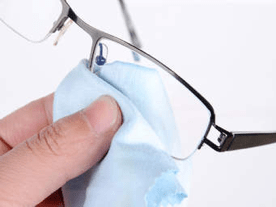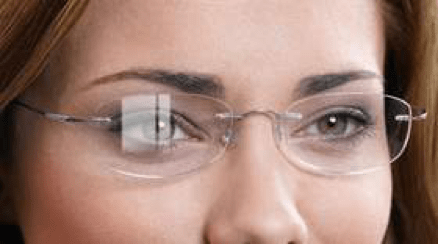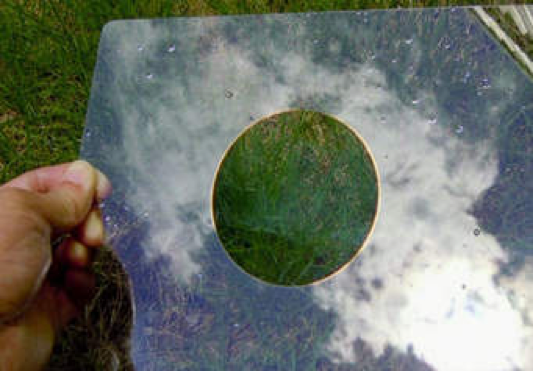About Lens Coatings
Understanding what lens coatings are and why they are needed
Ordering eyeglass lenses can be more complicated than many people realize. There are a number of options that can help make the lenses more durable, clearer, better looking and even safer.
Imagine buying a brand new pair of glasses and within a few days, the lenses are scratched. Not only does this look bad, but if that scratch is right in the center, your vision can become affected.

UV (Ultra-Violet) exposure is well known to cause damage to our bodies. Short term effects such as sunburn can be a painful reminder of that. Long term effects of UV exposure such as skin cancer can even be fatal. The eyes are no different. UV exposure to the eyes can cause keratitis (Think sun burn to the eye) in the short term. Long term it can cause pinguecula, pre-mature cataracts, certain ocular cancers and macular degeneration. In fact UV exposure is considered the second biggest risk factor for macular degeneration (No smoking if you want to avoid the biggest risk factor!).
Much like scratch resistant coatings, UV coatings are fairly inexpensive and block out all the harmful UV rays that can damage the eyes. At Payne Glasses, UV coatings are always included at no extra charge.
Have you ever looked at someone wearing eyeglasses and been almost unable to see their eyes due to glare or reflections coming off their lenses?
Typical eyeglass lenses reflect 8% to 12% of the light that is supposed to be transmitted through them. Cosmetically this can be a significant problem, but it goes beyond that. If people can’t get a good look at your eyes, they view you as less trusting and honest. Imagine a sales person walking into a meeting with a new client. Your glasses might make you look more educated or serious, good qualities indeed, but if the client is unable to make excellent eye contact due to reflections, you are already fighting an uphill battle.

Now flip the picture around to you as the wearer. With 8% - 12% of the light either not getting through to your eyes, or getting through scattered and distorted, your vision is certainly affected. This creates glare and distortions from things such as headlights and streetlights while driving at night and from digital images such as TVs, computers and phones. Not only does it affect the vision, it can also cause a significant amount of eyestrain because of the scattered light getting through to your eyes.
Anti-Reflective, Anti-Glare or AR lenses offer a solution. With this coating, over 99% of light is transmitted clearly through the lenses. This offers improved cosmetics and optics that should be expected from your new glasses. Payne Glasses includes Anti-Reflective coating on all glasses sold.

However, not all AR coatings are created equal. All AR coatings do what they are supposed to do, transmit a much higher amount of light to the eye, reducing glare and the eyestrain associated with it. With this improved functionality comes a lens that can be slightly more susceptible to getting dirty from things like fingerprints and even dust in the air.
Oleophobic AR lenses resist oil deposits (think finger prints). Because of this, they not only give nearly 100% light transmission, but they stay clean much longer than standard AR lenses. Reduced need to clean the lenses also reduces the likelihood of scratches developing. Our Premium AR lenses contain the Oleophobic properties that make them the most advance AR lenses available.
Lenses that block HEV or Blue Light and those that darken when exposed to sunlight are other lens options that deserve more attention. We will discuss those in a separate writing.